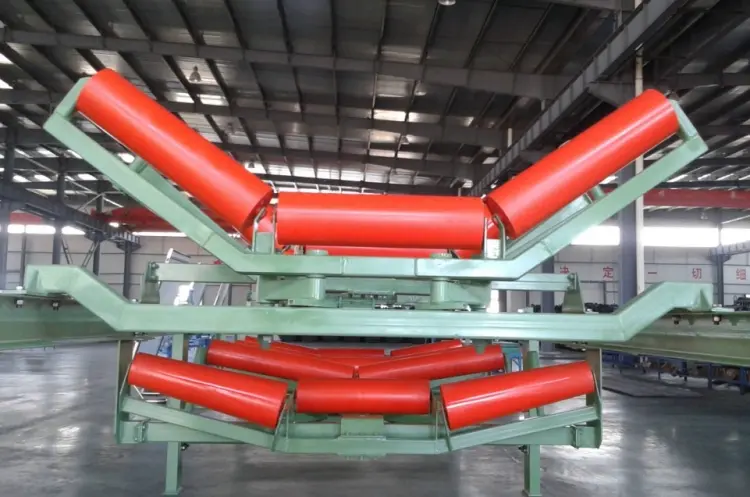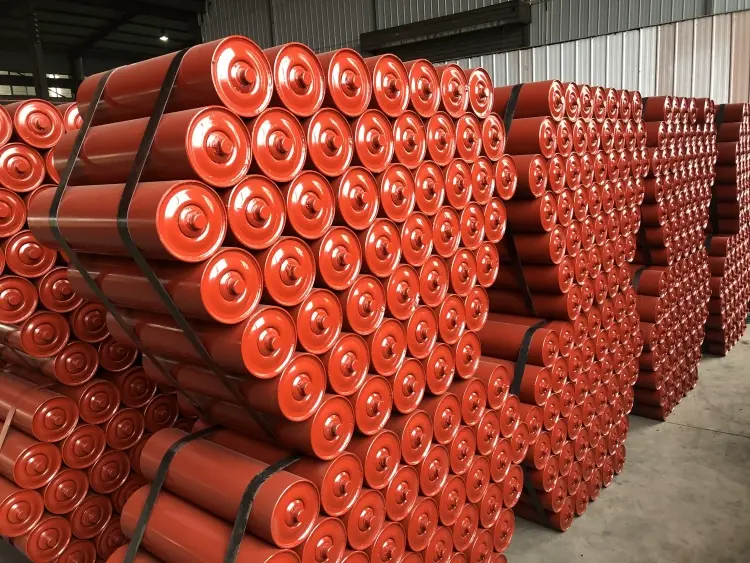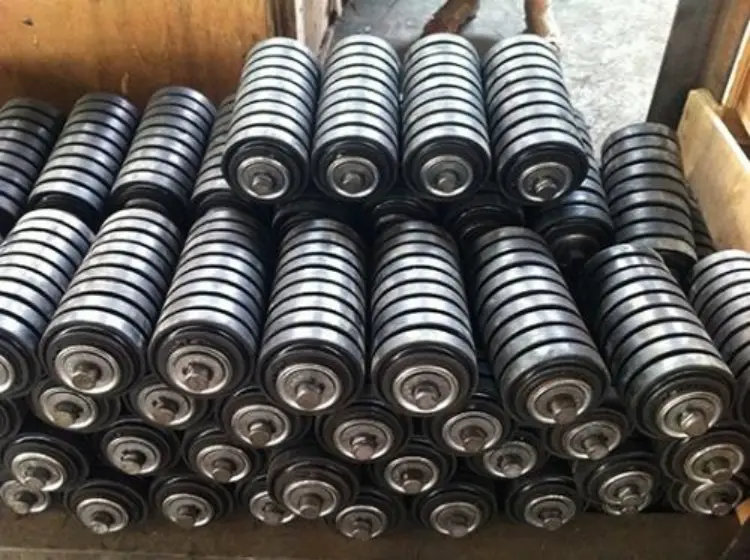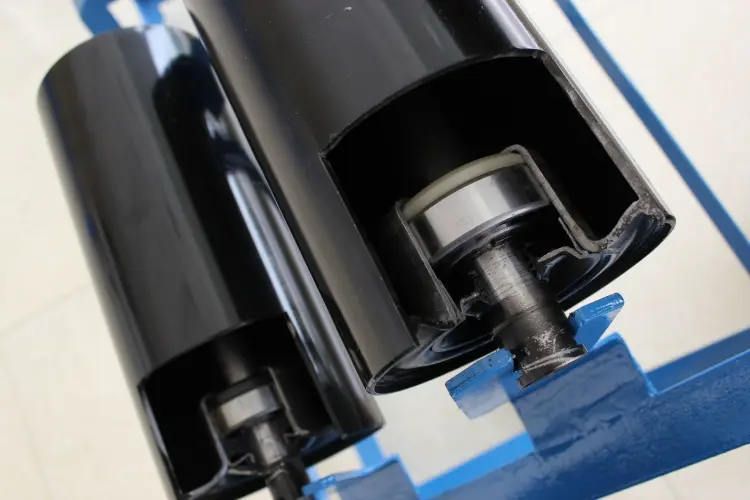Time:2024-11-06 17:35:31 Number of Clicks:
Anyone familiar with conveyor systems knows about conveyor rollers. However, many focus more on the overall parameters and efficiency of the conveying equipment, often overlooking the critical components like the conveyor rollers that play a vital role in the entire conveying process. Typically, users approach rollers with the mindset of "whatever the supplier provides is fine," without realizing that choosing the right type of roller can not only improve the overall efficiency of your system but also extend the lifespan of the equipment and its components, saving significant time and costs on part replacements.
The basic structure of a conveyor roller consists of the drum, bearings, end caps, and brackets. The drum is the primary load-bearing part of the roller, usually made from steel pipes or other sturdy materials. Bearings support the drum’s rotation, and the end caps protect the bearings from external elements. One common sealing design in rollers is the triple-lip labyrinth seal, which effectively prevents dust, moisture, and other contaminants from entering the bearings, especially in dusty or humid environments. Furthermore, different types of rollers have different curvature designs. For instance, troughing rollers are typically customized with specific curvature based on the bending angle of the conveyor belt to ensure smooth operation.

Conveyor rollers come in a wide variety, and depending on their working principle, structural design, and working environment, they can be classified into several types. Each type of roller has its specific applications and characteristics.
Conveyor Idler are the most common type of roller used in conveyor systems, primarily for horizontal or light-load belt systems. Their main function is to support the conveyor belt and ensure the smooth passage of materials through the conveyor system. They are typically made up of a drum, bearing, and end caps, and the surface may be coated with anti-corrosion materials or special coatings for increased durability.
Aligning idler rollers are used to correct conveyor belt misalignment. Their unique structure includes an integrated bearing housing and elastic components that allow the roller to automatically adjust when the conveyor belt shifts. Over time, external factors can cause the belt to deviate, and in such cases, aligning idler rollers will automatically adjust and realign the belt to its normal position, ensuring continuous operation.
Buffer rollers are installed at the feeding end of the conveyor system and are designed to absorb the impact force when materials are fed onto the belt. These rollers are typically made of soft materials such as rubber or polyurethane, which can effectively reduce the damage caused by material impact and extend the lifespan of the conveyor belt, while also lowering the system's maintenance costs.
Impact rollers are primarily used in areas where heavier materials are conveyed or where materials drop directly onto the belt. Unlike standard rollers, impact rollers are built with more robust designs, typically featuring reinforced shells and internal protective devices. These features allow impact rollers to withstand large forces and protect the conveyor belt from damage.
Troughing rollers are designed with three or five rows and are used to support the conveyor belt at the corners or curves of the conveyor system. The rollers help maintain the tension and shape of the belt, ensuring that materials do not fall off when the belt is turning. The curvature of the troughing rollers is specifically designed to ensure smooth operation even at various angles.
Steel rollers are typically used in heavy-duty conveyor systems or harsh environments. Their drums are usually made of high-strength steel to ensure durability and corrosion resistance. Steel rollers can handle tough working conditions, such as high temperatures, moisture, and chemical corrosion, making them commonly used in industries like mining, steel manufacturing, and heavy-duty applications.
HDPE (High-Density Polyethylene) rollers are known for their excellent corrosion resistance and wear resistance, typically used in wet or chemically harsh environments. Compared to traditional steel rollers, HDPE rollers are lighter and easier to install, while also offering superior impact resistance. These rollers are ideal for light-load applications and systems requiring continuous operation.
Please contact us using the info below if you have any questions about conveyor roller
● +86 136-6401-6717

The load capacity of a roller determines the weight of the materials it can support. Rollers with higher load capacities are typically used for heavy-duty material handling, while lighter rollers are suitable for lighter materials.
When choosing rollers, the specific working environment must be considered. For example, in damp or corrosive environments, it is advisable to use HDPE rollers or stainless steel rollers, which offer better corrosion resistance.
Rollers should be designed to minimize maintenance frequency. Features such as triple-lip labyrinth seals can significantly reduce maintenance needs, allowing for longer service intervals and better overall performance.

The price of conveyor rollers varies depending on factors such as material, size, load capacity, and other technical specifications. Steel rollers are generally more expensive due to their durability and suitability for heavy-duty applications. HDPE rollers are more affordable and suitable for light-duty applications. When choosing a manufacturer, factors such as product quality, delivery time, and after-sales service should also be taken into consideration. For example, Zoomry's conveyor rollers offer highly competitive prices, with extremely short delivery times. With a large inventory of equipment available, Zoomry ensures that customers’ project schedules are met promptly.

CEMA (Conveyor Equipment Manufacturers Association) has set industry standards for conveyor rollers. These standards define the dimensions, load capacities, materials, and performance requirements for rollers. Rollers produced according to CEMA standards guarantee efficient and stable operation, reducing the likelihood of system failures due to product quality issues. Zoomry’s rollers meet CEMA standards, ensuring that you receive only the highest quality rollers that meet your specific needs.
Copyright © 2002-2024 Zoomry Group Company Limited